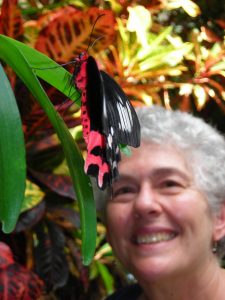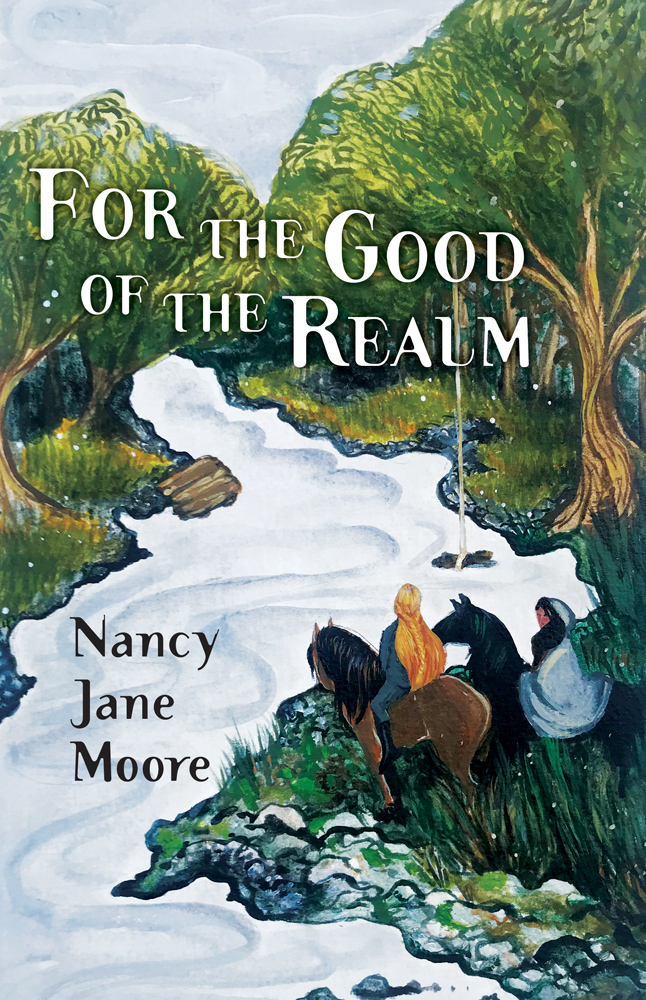 A confession: I like to read at bedtime. In this company, that’s nothing unusual. All the sleep hygiene experts say not to, that beds should be used for sleeping and only one other activity. What do they know? I find something deeply comforting about curling up with a good–but not too exciting–book. Perhaps it evokes memories of my mother reading aloud to me, or it’s just “me time.”
A confession: I like to read at bedtime. In this company, that’s nothing unusual. All the sleep hygiene experts say not to, that beds should be used for sleeping and only one other activity. What do they know? I find something deeply comforting about curling up with a good–but not too exciting–book. Perhaps it evokes memories of my mother reading aloud to me, or it’s just “me time.”
Often I include in my nightly reading a page or two of something that stretches my mind. I don’t mean that in the intellectual sense, for I definitely want to be quieting my thoughts, not forcing myself to think critically. I try to choose books that get inside my brains and stretch them gently in unexpected directions, like mental yoga before settling into my comfort reading.
An example of this kind of reading is Natalie Goldberg’s LONG QUIET HIGHWAY. Goldberg is a writing teacher, essayist and novelist who is also a long-time student of Zen Buddhism. I was introduced to her work years ago with her WRITING DOWN THE BONES, and had always thought of her as a teacher in the style of Julia Cameron: “Morning pages,” keep the pen moving, let your thoughts flow, that sort of advice. LONG QUIET HIGHWAY is autobiographical rather than instructive. I was deeply moved by how she put together mundane, specific details in ways that brought tears to my eyes. More than that, she has gotten me thinking — or rather, feeling/sensing — more deeply about the role of writing in my own life. Yes, it’s a pleasure and an obsession; yes, it’s my occupation, how I earn my living.
- Mountain Pose: Could it also be the lens through which I view the world? Sure, no problem; every new experience is grist for the mill. That’s the easy answer, just as the plot skeleton is the easy description of a story. As a writer, I know that storyness is much deeper than plot. Can I use that same insight to listen more deeply, look beyond appearances, appreciate the interwoven complexity of my community and environment?
- Dancing Shiva Pose: How about writing as a spiritual practice? Um, isn’t that a bit pretentious…or is it? Is there something moving through me, speaking through me, when I write from my heart? Can I shove my ego as well as my intellect out of the way? Speaking of intellect, and ego, and mind…
- Pigeon Pose: Could writing help me become better acquainted with my own mind? The way my thoughts sometimes behave like grasshoppers on steroids? The phrases and connections and story elements I use repeatedly, without intention? The cycles of feeling I’ve written something fine, only to plummet to the certainty it’s all drek, that I can never get anything right?
- Corpse Pose: Is writing a way of stilling my thoughts and becoming fully present–through words, are you kidding? Ah, those moments when it feels like I’m not making up these words, they’re coming from somewhere else, I’m just a lens, a focal point through which light passes.
I have no easy answers, but I will be watching myself–my self–more closely as I write. And who knows, I might even achieve a new literary Downward-Facing Dog.

 I just received editorial comments and a marked-up manuscript of the current novel from the editor. It’s such a joy to work with a professional who “gets it” and offers intelligent, insightful feedback. Editorial comments are quite different from critiques, by the way. At least, in my experience. While both can be valuable, the critiquer is essentially outside the story, jabbing at its shortcomings, whereas a good editor gets inside the story with the author, rolls up her sleeves, and says, “Let’s work together to make this book its best self.” And I have a great editor.
I just received editorial comments and a marked-up manuscript of the current novel from the editor. It’s such a joy to work with a professional who “gets it” and offers intelligent, insightful feedback. Editorial comments are quite different from critiques, by the way. At least, in my experience. While both can be valuable, the critiquer is essentially outside the story, jabbing at its shortcomings, whereas a good editor gets inside the story with the author, rolls up her sleeves, and says, “Let’s work together to make this book its best self.” And I have a great editor. Stories can heal and transform us. They can also become beacons of hope.
Stories can heal and transform us. They can also become beacons of hope. It’s blackberry season, and as is my custom at this time, I went out this morning to pick from the brambles along our little country road. (We have our own patch, but the berries ripen later because it’s in a shadier place.) I try to do this early, when it’s cool and I’m not having to squint into the sun for the higher branches. As I picked, I thought about the story I’m working on (and currently stalled on 2 scenes-that-need-more), and also writing in general.
It’s blackberry season, and as is my custom at this time, I went out this morning to pick from the brambles along our little country road. (We have our own patch, but the berries ripen later because it’s in a shadier place.) I try to do this early, when it’s cool and I’m not having to squint into the sun for the higher branches. As I picked, I thought about the story I’m working on (and currently stalled on 2 scenes-that-need-more), and also writing in general.
 Crossing genres is hot business these days: science fiction mysteries, paranormal romance, romantic thrillers, Jane Austen with horror, steampunk love stories, you name it. A certain amount of this mixing-and-matching is marketing. Publishers are always looking for something that is both new and “just like the last bestseller.” An easy way to do this is to take standard elements from successful genres and combine them.
Crossing genres is hot business these days: science fiction mysteries, paranormal romance, romantic thrillers, Jane Austen with horror, steampunk love stories, you name it. A certain amount of this mixing-and-matching is marketing. Publishers are always looking for something that is both new and “just like the last bestseller.” An easy way to do this is to take standard elements from successful genres and combine them.